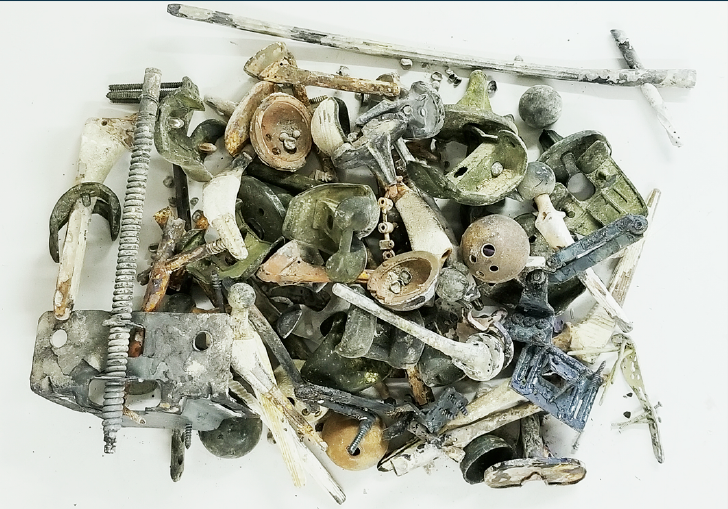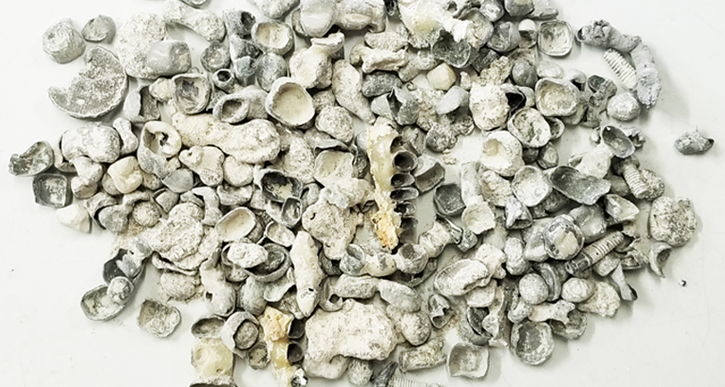IMPLANT RECYCLING FOR CREMATORIES
WHAT IS IMPLANT RECYCLING?
Implant recycling refers to the process of collecting, processing and recycling medical implants. This is a necessary practice for crematories as they need to find a source to dispose of the non-organic material left over after the cremation process which consists largely of metallic medical implants and prosthetics. The value of this material can be quite surprising with many crematories seeing six-figure plus annual recycling returns. Responsible implant recycling is not only the best environmental choice, but also the best option to get crematories or the charities near and dear to their hearts the significant proceeds from the value of these metals.
IMPLANT RECYCLING – MEDICAL PROSTHETICS
Post cremation metal recyclers generally breakdown medical prosthetics into two categories:
Surgical implants (non-precious): Surgical implants such as cobalt knee/hip replacements and titanium rods and screws (along with the casket hardware), make up more than 99% of the total volume of post-cremation metals, but accounts for less than 1% of the recycling proceeds.

Dental prosthetics (precious/semi-precious): Dental prosthetics or dental implants make up less than 1% of the total volume of post-cremation metals, but account for up to 99% of the value generated from implant recycling. This is because precious metals like gold and palladium are widely used in dental implants such as crowns, bridges, fillings and porcelain fused to metal crowns.

IMPLANT RECYCLING IN THE CREMATION INDUSTRY – HOW DOES IT WORK?
When processing cremated remains, crematory operators follow a series of steps to attempt to collect and separate as much non-organic material away from the remains as possible. The purpose of separating out metals is to ensure the remains, given to the family, are clear of any non-organic contaminants.metal or foreign materials. Non-Organic waste recovered in the cremation process occurs both pre and post-cremation and includes, but is not limited to: casket hardware, orthopedic and dental implants, pacemakers and defibrillators. There are many different techniques and methods to accomplish this but almost all of them are flawed. Poor technique at the processing station will result in contaminated remains, increased safety risk and significantly reduced implant recycling proceeds.
All of the metal materials separated must be disposed of in accordance with state and federal standards. The best disposal method is to securely ship this material to a trusted refinery to be melted down and professionally analyzed.
THE BENEFITS AND THE VALUE OF IMPLANT RECYCLING
The value of implant recycling is not only environmental, a point we will further expand on shortly; but there is also significant monetary value, especially in the dental material. Precious metals like gold and palladium which are abundant in dental scrap metals have recently been trading near $2,000 per ounce. By contrast, it would take over 1000 pounds of metal from casket hardware to equal the value of precious metal found in one typical dental crown.
Organizations like CANA (Cremation Association of North America) and ICCFA (International Cemetery, Cremation and Funeral Association) support and encourage medical implant recycling, understanding not only the environmental benefit, but also acknowledging that implant recycling returns a significant value that can be used for capital improvements or charitable donations.
ENVIRONMENTAL AND SOCIAL IMPACT
Recycling protects the environment by reducing the need of extracting, processing and refining natural materials and benefits all of mankind and future generations by preserving the earth’s precious natural resources.
Non-organic post-cremation materials are classified as “hazardous waste” by the EPA. Per Title 40 of the US Code of Federal Regulations must be disposed of properly.

Responsible implant recycling helps to conserve natural resources that are destroyed during mining practices. The mining of metals adversely impacts the environment through soil erosion, contamination of surface water, groundwater and soil. It can also contribute to the leakage of chemicals into the area adversely affecting the health of local residents. Air pollution is another concern. In some mining processes, gas emissions can be released into the atmosphere causing elevated levels of harmful pollutants into the atmosphere.
lume of post-cremation metals, but accounts for less than 1% of the recycling proceeds.
…Responsible implant recycling helps to conserve natural resources that are destroyed during mining practices.
CHOOSING THE RIGHT COMPANY TO HANDLE YOUR IMPLANT RECYCLING
There are several different companies to choose from to handle your implant recycling needs. Here are the most important things to consider when choosing the best provider to handle your implant recycling needs:
- Make sure they are a precious metal refiner
- Some of the biggest names in implant recycling are actually metal brokers or middlemen and rely on a third party to process and analyze the metals. This can impact your implant recycling proceeds by as much a 70%. You can learn more about our technology and unique process.
- Make sure they provide a transparent service
- Full assay reports with all metal prices, weights and yields should always be provided. Learn more about our transparency
ABOUT CORE SCIENTIFIC
Core Scientific is made up of a team of experts with combined experience of more than half a century in cremation and dental refining services. We know how to help you make the most of your implant recycling program and can produce results that go far beyond just metal recycling.
Core Scientific has grown to become one of the largest implant recycling companies in North America with over 500 crematories entrusting us to administer their cremation metal recycling program. We invest in the latest refining technologies while helping our clients to streamline operations and maximize recycling returns through our STEP program.
STEP stands for security, transparency, education and processing. By addressing these four elements, Core Scientific can help you take your crematory to new heights.

